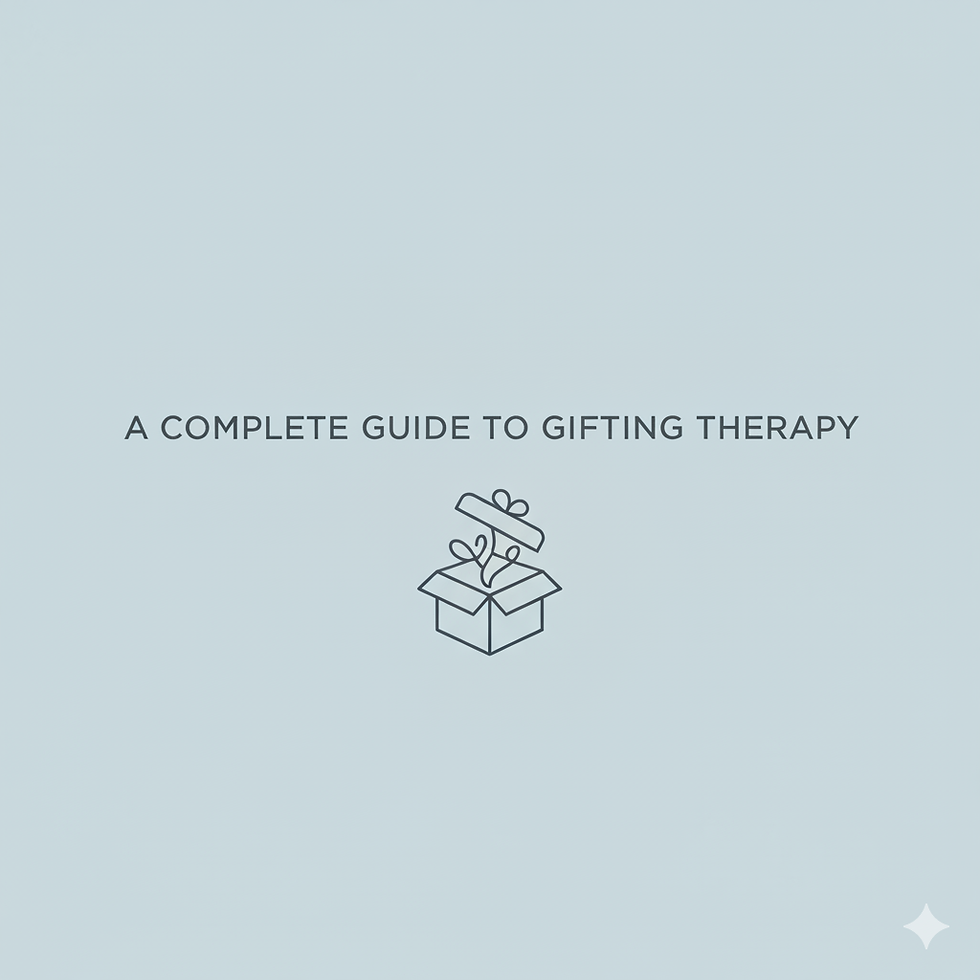NEED HELP DEALING WITH INTENSE EMOTIONS? THIS ONE’S FOR YOU!
- Regina D'Cruz
- Feb 28, 2021
- 4 min read
Do you struggle with feeling intense emotions? Do you often face difficulty trying to control or regulate how you feel, often harming yourself and others in the bargain? Some of us experience this more frequently than others. Some also feel more intensely when it comes to only certain people in their lives. If any of the above resonates with you, then this article is definitely for you!

If you haven’t already noticed, when we are emotionally charged or overwhelmed with an emotion, we are unable to think clearly or rationally. Our neo cortex, which is at the front of the brain, responsible for rational thinking, learning, decision making, empathy and creativity is shut down when emotions run high. The amygdala, on the other hand is activated. This is where we feel emotions like fear, anxiety and anger, and also where our emotional memories are stored. In order for the neo cortex to get back to functioning smoothly, along with the rest of the brain, we must be able to reduce the intensity of what we are feeling.
The decisions people with overwhelming emotions take and the coping strategies they use are more often than not, unhealthy and may come at a cost. For example, when one tries to cope with losing their job or a break up by indulging in risky behaviours like drugs, alcohol or unsafe sex, engaging in self- harm or avoiding pleasant activities because they feel that they don’t deserve it, over eating or starving themselves, etc. All these responses are self-destructive and can negatively affect their lives. They may cause physiological problems, scarring, cause further loneliness and isolation, loss of money, loss of friends, addiction and so on.
So, how do we help ourselves when we find that we are in a situation where we are in too much emotional pain? We can try practicing something called ‘Distress tolerance skills’. These skills will not make the problem go away or reduce the pain or distress. It is to avoid ourselves from reacting impulsively and using the unhealthy coping methods discussed in the previous paragraph. It simply helps us ‘tolerate’ the pain until it passes. Once we have calmed down, then we can decide rationally and wisely on how to deal with the problem at hand.

Some Distress Tolerance skills you can practice are listed below. You could make a note of the ones you are willing to try on a post it and stick it in your room or a notebook you can easily access. You could also save it on your phone and refer to these when you are in that intense emotional state.
· If you are prone to self-harm, you can use an ice cube on the area you feel like hurting. Write on yourself with a red sketch where you would otherwise cut. Snap a rubber band on your hand every time you feel like hurting yourself (causes minor pain and less damage)
· Scream into your pillow or anywhere where people can’t hear you.
· Cry, it releases stress.
· Throw rolled up socks/ pillows/ foam balls against the wall to get that anger out.
· Listen to calming sounds. You can find these online. Try sounds of the ocean/ birds chirping/ waterfall/ rain.
· Write a letter to the person who hurt you, be as honest and as raw as you can. Then tear/ crumble or burn that paper.
· Exercise- either do a vigorous cardio workout or gentle yoga, whichever suits your mood at that time. (you can find many on YouTube)
· Distract yourself with activities that bring you pleasure. Talk to your best friend/ play with your pet/ sing/ dance/ draw/ colour/ go for a ride/ play a sport/ read/ cook/ watch something/ etc.
· Go people watching. We are less likely to show our emotions in a public place. So, find a spot, watch what’s happening around you, count the number of people with green shirts or the number of kids you see, try to observe as many details as possible.
· Pay attention to nature. In detail. Look at the trees, their leaves, the sky, the clouds, what shapes they make, watch the squirrels, birds. Again, try to observe several details about them.
· Controlled, deep breathing. Breathing in and out deeply, paying attention to only your breath, the cool air going in and the warm air coming out. Pay attention to your chest and belly rising and falling. You could try ‘box breathing’ or ‘figure 8 breathing’.
· Repeating phrases to yourself. You could personalize these self-statements and repeat it in your mind or better still, out loud. Some examples include- ‘I got this’, ‘I am not in danger’, ‘This too shall pass’.
· Chew on something sour or sweet like gum or mints. The intense taste will distract you.
· Use your sense of smell to calm yourself down by burning candles or incense sticks. Go out to smell the trees/grass or damp earth.
· Distract yourself by doing household chores- washing vessels, cooking, cleaning, decluttering, etc.
This does not solve the problems we are faced with. But, helps us calm our intense emotions, stops us from acting impulsively and choosing unhealthy coping strategies. Once we feel calm enough to think clearly, we can move on to making plans on how to actually deal with the crisis.
REFERENCES:
4. The Dialectical Behaviour Therapy Skills Workbook by McKay, Wood and Brantley



Comments